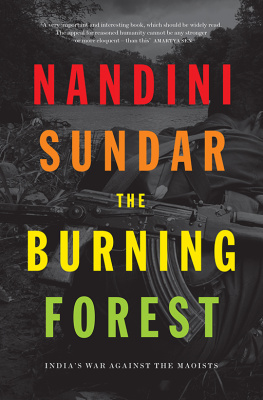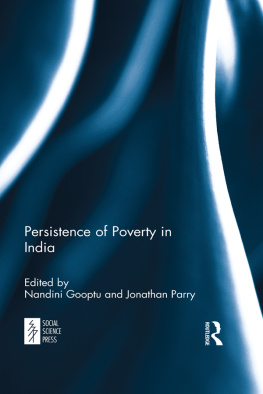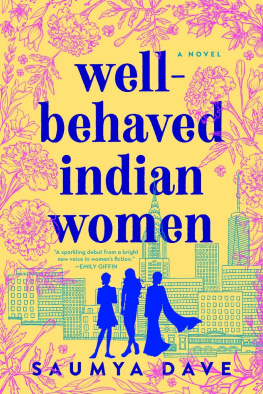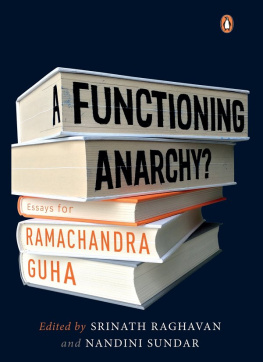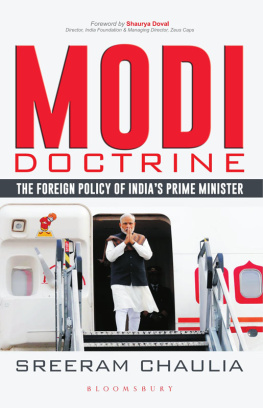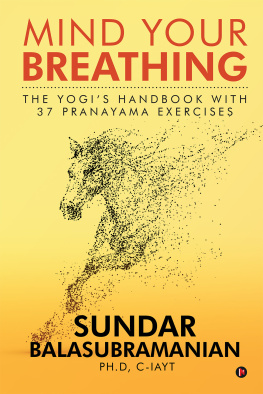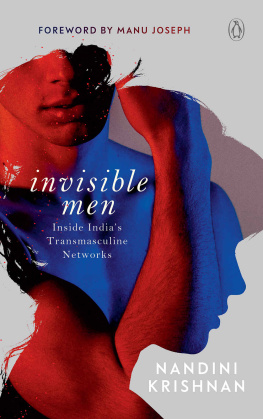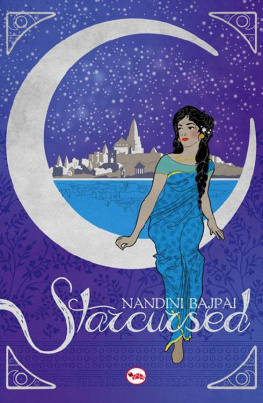Nandini Sundar - The Burning Forest
Here you can read online Nandini Sundar - The Burning Forest full text of the book (entire story) in english for free. Download pdf and epub, get meaning, cover and reviews about this ebook. year: 2019, publisher: Penguin Random House LLC (Publisher Services), genre: Politics. Description of the work, (preface) as well as reviews are available. Best literature library LitArk.com created for fans of good reading and offers a wide selection of genres:
Romance novel
Science fiction
Adventure
Detective
Science
History
Home and family
Prose
Art
Politics
Computer
Non-fiction
Religion
Business
Children
Humor
Choose a favorite category and find really read worthwhile books. Enjoy immersion in the world of imagination, feel the emotions of the characters or learn something new for yourself, make an fascinating discovery.
- Book:The Burning Forest
- Author:
- Publisher:Penguin Random House LLC (Publisher Services)
- Genre:
- Year:2019
- Rating:3 / 5
- Favourites:Add to favourites
- Your mark:
- 60
- 1
- 2
- 3
- 4
- 5
The Burning Forest: summary, description and annotation
We offer to read an annotation, description, summary or preface (depends on what the author of the book "The Burning Forest" wrote himself). If you haven't found the necessary information about the book — write in the comments, we will try to find it.
The Burning Forest — read online for free the complete book (whole text) full work
Below is the text of the book, divided by pages. System saving the place of the last page read, allows you to conveniently read the book "The Burning Forest" online for free, without having to search again every time where you left off. Put a bookmark, and you can go to the page where you finished reading at any time.
Font size:
Interval:
Bookmark:

Indias War Against the Maoists
Nandini Sundar

This edition published by Verso 2019
First published by Juggernaut Books 2016
Nandini Sundar 2016, 2019
All rights reserved
The moral rights of the authors have been asserted
1 3 5 7 9 10 8 6 4 2
Verso
UK: 6 Meard Street, London W1F 0EG
US: 20 Jay Street, Suite 1010, Brooklyn, NY 11201
versobooks.com
Verso is the imprint of New Left Books
ISBN-13: 978-1-78873-145-4 (PBK)
ISBN-13: 978-1-78873-252-9 (HBK)
ISBN-13: 978-1-78873-147-8 (UK EBK)
ISBN-13: 978-1-78873-146-1 (US EBK)
British Library Cataloguing in Publication Data
A catalogue record for this book is available from the British Library
Library of Congress Cataloging-in-Publication Data
A catalog record for this book is available from the Library of Congress
Typeset in Adobe Caslon Pro
Printed by CPI Mackays, UK
To Manish Kunjam who has fought for his people
with honour and retained a sense of humour through terrible times
To Ashok Desai and Nitya Ramakrishnan
for striving to make the Constitution of India meaningful
Contents
A colleague at the Delhi School of Economics, Rabindra Ray, once told me a story which had circulated in the 1970s, in the days when he was a Naxalite or an armed revolutionary, drawing inspiration from communist struggles around the world. A policeman taunted a youth he had arrested: You Naxalites talk so much about Vietnam, he said. Show me where it is on the map. The youth who was illiterate put his hand on his chest and replied, It is in my heart.
Today, in the former undivided district of Bastar stretching over 39,114 square kilometres in the south of Chhattisgarh, the landscape of the heart is like a torn map, fluttering between resistance and anguish. The region is at the core of the Indian governments war with Maoist guerrillas. The Government of India is represented by barbed wire camps, helicopters, roads and mines that cut deep gashes through the forest. The janathana sarkar or peoples government of the Communist Party of India (Maoist), on the other hand, has unmarked boundaries and mysterious circuits of information. Its citizens face an uncertain, perilous journey, on which they have embarked with determination but no clear destination. They are not always sure who their fellow travellers are. When I asked a man whom he preferred, the government or the Maoists, he replied, I know what is in my own heart, I cannot speak for the hearts of others.
Starting in the early 1980s, the Maoists established a strong base in Bastar, helping the villagers resist the petty tyrannies of the bureaucracy. Years of sporadic battle followed. In 2005 the Indian government began concerted operations to bring the area back under its control. The fabulous mineral resources of Bastar and practical sovereignty were both at stake. The first step was to prop up a so-called peoples movement named the Salwa Judum, which in Gondi, translates literally as purification hunt. Vigilantes accompanied by security forces went through villages, burning, looting and killing, forcibly removing villagers to government-controlled camps. By 2009, the Judum had been converted into a full-fledged police and paramilitary operation, named Operation Green Hunt. In the years since, the number of deaths, rapes and arrests of civilians has only grown, quite apart from the deaths of security forces and Maoist cadres. A standard feature of such wars is the impossibility of fixing numbers and even identities.
In , I ask what difference it makes, if any, when a counter-insurgency campaign is conducted in a democracy rather than a military regime or colonial government. How have different institutions and actors reacted, ranging from the welfare bureaucracy to political parties, human rights organizations, the media and the judiciary? The tragedy of India is not that there are only a few fringe elements or brave dissenters who oppose its wars, but that, despite a well-developed institutional structure, even the most basic of checks within the state fail in the face of corporate and political greed and official indifference.
This book is written against both the governments militaristic understanding of the Maoist movement as a law and order problem that must be crushed and the revolutionary certainties of the Maoists and their sympathizers. It is written for all those who hate the impunity and arrogance of the Indian state, who admire the Maoists for their sacrifices but disagree with the wisdom of their path, and who recognize that violence, even against injustice, can degenerate into brutality and corruption.
This book is written for all the ordinary adivasis I know, who make difficult moral choices within complex constraints, and many of whom are heroic beyond bounds I can scarcely imagine. In todays conditions, it requires superhuman effort for them to merely survive.
This book is written because, in the absence of justice, at least the truth must be on record.
This book is written for myself as catharsis, as helpless witnessing, as rage about the annihilation of a people and their way of life.
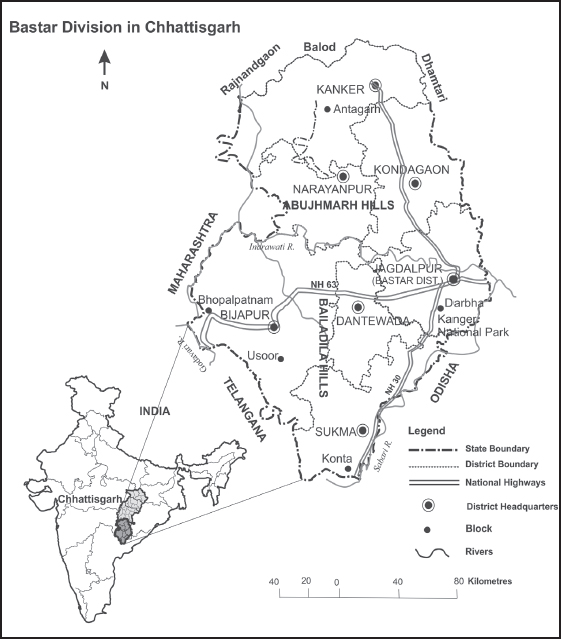
Dandakaranya, the Forest of Exile
do not forgive truly it is not in your power
to forgive in the name of those betrayed at dawn
Zbigniew Herbert, The Envoy of Mr Cogito
February 2006
Hungi lay counting the stars as they slowly faded into half-light, putting off the moment when she would have to start her morning chores. The goat kid had kept her up half the night by running up and down below her bed, rubbing its back against the ropes that made up the cot and nibbling at her toes. Pandri, the white rooster her father was training for a prizefight, had just started crowing but was not yet insistent. Her mother, Deve, had got up earlier to defecate while it was still dark a time when only the dim shapes of people would be visible. But Hungi was being lazy that morning. Suddenly, 16-year-old-Masa, one of the village sentries, came running through the village, shouting loudly, The Judum is coming. Nearing Hungis house, he said breathlessly, They have come to Itapalliand its our turn next. On her feet instantly, Hungi grabbed her baby brother and ran in the direction she had seen her mother going. Her father, Rama, who had been up for a while warming his hands around a small fire, went inside the house and gathered as much grain as he could in a small cloth bag, quickly untied the cattle and followed her. In half an hour, the entire village was deserted, except for the squawking chickens and some pigs.
They came from the east, some 400 men dressed in camouflage fatigues, some with black scarves around their heads, carrying Kalashnikovs. They reached the village just as dawn was breaking. In front was the former Maoist Kiche Handa, now working with the police as a Special Police Officer. His task was to point out houses. Thats the house of the headman, he said, where the Maoist leaders always stay when they visit the village. And thats the house of Hadma, an active sympathizer. The force went inside the houses and took whatever they found rice, money, jewellery. In Hungis house, they kicked at the sack of beans she had so carefully collected, spilling them around the house before setting fire to it. The fire took time to catch since the houses were at a little distance from each other. But by 11 a.m., all seventy mud and thatch huts in the hamlet were burning. The forces were tired and the local commander called a halt. They moved a little way off and began to cook, feasting on the frightened chickens they had captured and the rice they had looted. By the time lunch was over, it was two in the afternoon, and time for the next village.
Font size:
Interval:
Bookmark:
Similar books «The Burning Forest»
Look at similar books to The Burning Forest. We have selected literature similar in name and meaning in the hope of providing readers with more options to find new, interesting, not yet read works.
Discussion, reviews of the book The Burning Forest and just readers' own opinions. Leave your comments, write what you think about the work, its meaning or the main characters. Specify what exactly you liked and what you didn't like, and why you think so.

